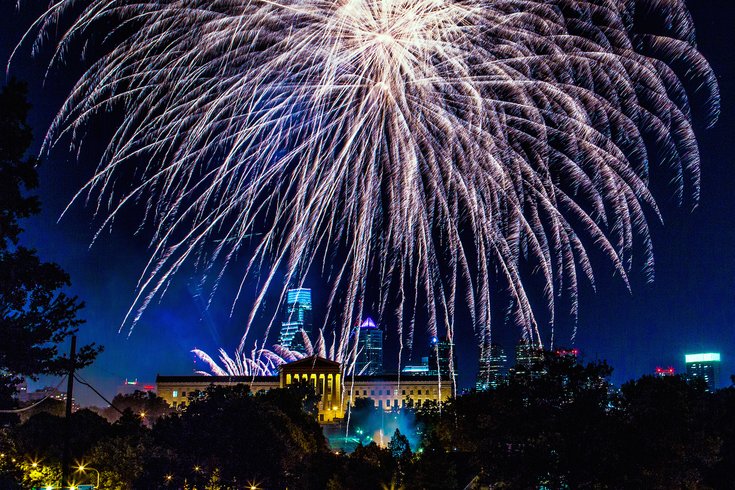
July 02, 2015
 J. Fusco/Visit Philadelphia™
J. Fusco/Visit Philadelphia™
Fireworks mark the end of Philadelphia's Fourth of July celebration.
Every Independence Day for the past eight years, Shawn Gourley and her family have left their Indiana home for remote campgrounds to escape the fireworks that trigger her veteran husband's wartime memories.
Gourley's husband Justin, who served in the U.S. Navy from 2000 to 2004, is one of about 500,000 Iraq and Afghanistan war veterans with post-traumatic stress disorder, which can be worsened by the cracks and thunder of celebratory fireworks.
"Anytime that we get scared, we react. They do the same thing," said Gourley, whose husband becomes anxious at the sound of fireworks, paces back and forth and searches for ways to guard his family.
This year, in an effort to expose an issue about which many veterans feel shame, the Gourleys launched a sign campaign to educate their neighbors about the effects of fireworks on combat veterans.
The group, Military with PTSD, on Wednesday was finishing up mailing out nearly 4,000 signs reading "Combat veteran lives here, please be courteous with fireworks," to veterans who requested them, Gourley said. Another 3,400 people are on the waiting list to receive a free sign.
About 31 percent of Vietnam War veterans and 10 percent of Gulf War veterans suffer from PTSD, according to the National Institutes of Health.
The loud blasts and flickering lights that resemble gunfire and other battleground noises can trigger panic attacks and other stress responses linked to the illness, according to the Veterans Health Administration.
The campaign asks residents to inform their veteran neighbors about when and where they plan to set off fireworks so the former servicemen can prepare. It also aims to start a conversation between non-veterans and veterans, whose PTSD can cause feelings of isolation and a desire to avoid crowds.
"All they want is a heads-up," Gourley said.
The idea that veterans are anti-fireworks is a misconception that has led to criticism of the campaign, she said.
On the Military with PTSD Facebook page, which has more than 160,000 followers, some people have called it a way to spoil patriotic festivities.
The page also carries thousands of messages of support, many from people with family members suffering from PTSD.
One user recalled a childhood memory of his father, a Vietnam veteran, diving into a ditch after forcing himself to watch fireworks on a family outing: "I never knew how bad fireworks could bother someone as big and tough as my dad."